Eicosapentaenoic Acid
How to submit an article:
- Registered users can submit any published journal article that has a unique DOI (Digital Object Identifier) name or link to Research Hub.
- For example, you can paste the full DOI link:
https://doi.org/10.1109/5.771073or just the DOI name:10.1109/5.771073into the field above and click submit. - The person who is first to submit a valid article to Research Hub will forever be credited for it, and every article submission earns you +6 Research Points.
Related Topics
Published research studies are articles that present the findings of original research that has undergone a peer-review process and has been made publicly available in scholarly journals, books or other media.
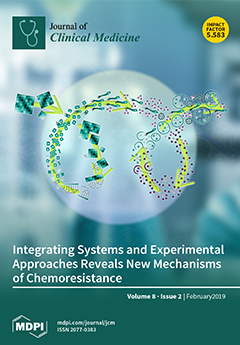
Efficacy of Omega-3 Intake in Managing Dry Eye Disease: A Systematic Review and Meta-Analysis of Randomized Controlled Trials
2023 Nov 10 Journal of Clinical Medicine Wang WX, Ko ML
Meta-Analysis Systematic Review Omega-3 Fatty Acids Eicosapentaenoic Acid Dry EyeOmega-3 fatty acid supplements can effectively alleviate symptoms of dry eye disease, especially when consumed in high doses for a long term and with high eicosapentaenoic acid levels.

Effectiveness of a Novel ω-3 Krill Oil Agent in Patients With Severe Hypertriglyceridemia
2022 Jan 06 JAMA Network Open Mozaffarian D, Maki KC, Bays HE, Aguilera F, Gould G, Hegele RA, et al.
his study found that ω-3 –PL/FFA, a novel krill oil–derived ω-3 formulation, reduced TG levels and was safe and well tolerated in patients with severe hypertriglyceridemia.
Randomised Controlled Trial Krill Oil Triglyceride Omega-3 Fatty Acids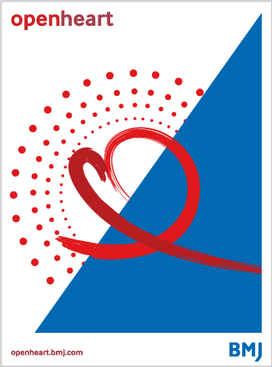
Importance of maintaining a low omega–6/omega–3 ratio for reducing inflammation
2018 Nov Open Heart DiNicolantonio JJ, O’Keefe JH
The study concludes that omega-3 PUFAs, specifically eicosapentaenoic acid (EPA) and docosahexaenoic acid (DHA), exhibit anti-inflammatory effects by reducing markers of inflammation, adhesion molecules, and atherosclerosis-related factors, contrasting with the proinflammatory effects associated with omega-6 PUFAs, particularly LA.
Experimental Study Systematic Review Inflammation Omega-6 Omega-3 Ratio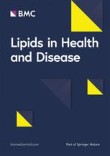
Omega-3 fatty acids eicosapentaenoic acid and docosahexaenoic acid and their mechanisms of action on apolipoprotein B-containing lipoproteins in humans: a review
2017 Aug 10 Lipids in Health and Disease Oscarsson J, Hurt-Camejo E
In humans, EPA and DHA reduce plasma TG levels to a similar extent via two main mechanisms: 1) by reducing hepatic production of VLDL lipoproteins; and 2) by increasing postprandial LPL activity.
Review Article Omega-3 Fatty Acids Apolipoprotein B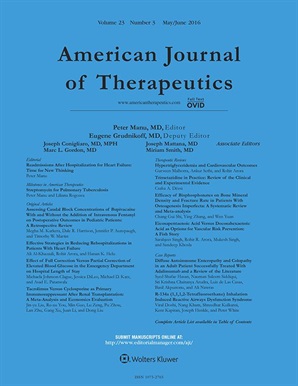
Eicosapentaenoic Acid Versus Docosahexaenoic Acid as Options for Vascular Risk Prevention
2016 May American Journal of Therapeutics Singh S, Arora RR, Singh M, Khosla S
Review Article Eicosapentaenoic Acid Docosahexaenoic AcidResearch insights are moderated by the Research Hub team and offer an at-a-glance overview of interesting research findings.

2023 Journal of Clinical Medicine
Omega-3 fatty acid supplements can effectively alleviate symptoms of dry eye disease, especially when consumed in high doses for a long term and with high eicosapentaenoic acid levels.
Meta-Analysis Dry Eye Omega-3 Fatty Acids
Efficacy of Omega-3 Intake in Managing Dry Eye Disease: A Systematic Review and Meta-Analysis of Randomized Controlled Trials
Wang WX, Ko ML

2016 The Journal of Nutrition
Dietary omega-3 intake shows promise in lowering systolic blood pressure.
Randomised Controlled Trial High Blood Pressure Omega-3 Fatty Acids
Consumption of Fish Oil Providing Amounts of Eicosapentaenoic Acid and Docosahexaenoic Acid That Can Be Obtained from the Diet Reduces Blood Pressure in Adults with Systolic Hypertension: A Retrospective Analysis
Minihane AM, Armah CK, Miles EA, Madden JM, Clark AB, Caslake MJ, et al.
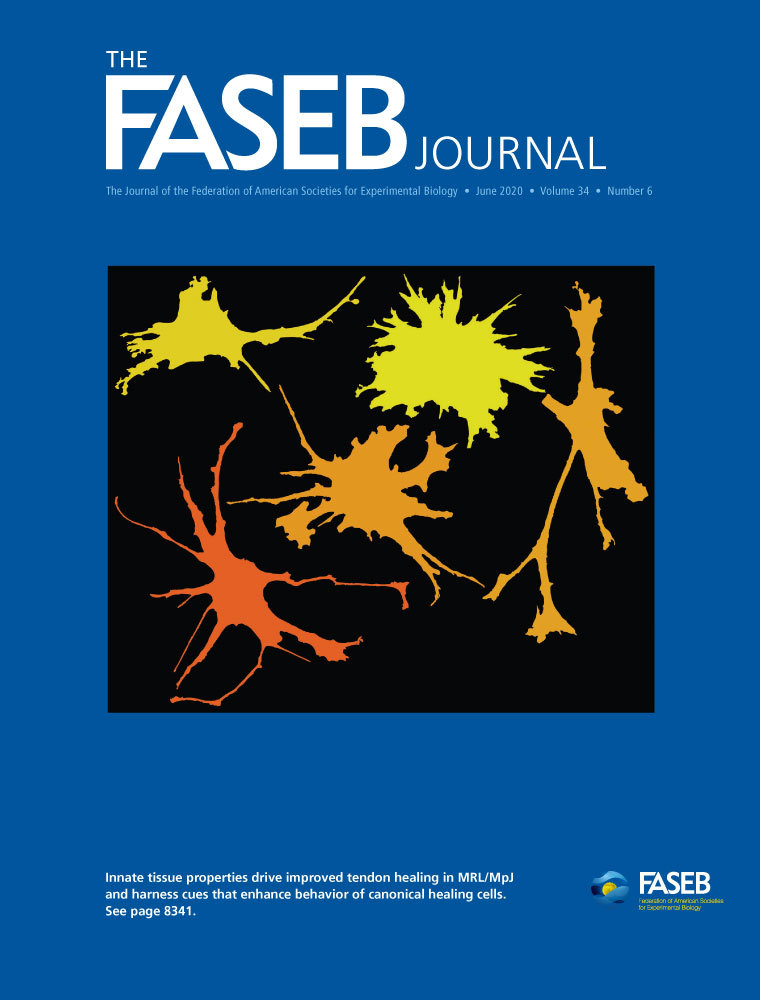
2015 The FASEB Journal
Serotonin function, influenced by vitamin D and omega-3 fatty acids, plays a critical role in neuropsychiatric disorders and certain behavioral functions.
Review Article ADHD Bipolar Disorder Impulsive Behaviour Mental Health Omega-3 Fatty Acids
Vitamin D and the omega‐3 fatty acids control serotonin synthesis and action, part 2: relevance for ADHD, bipolar disorder, schizophrenia, and impulsive behavior
Patrick RP, Ames BN
Review Articles
Review articles summarise and critically evaluate the current state of research on a specific topic or field by synthesising multiple primary research studies.

Efficacy of Omega-3 Intake in Managing Dry Eye Disease: A Systematic Review and Meta-Analysis of Randomized Controlled Trials
2023 Nov 10 Journal of Clinical Medicine Wang WX, Ko ML
Meta-Analysis Systematic Review Omega-3 Fatty Acids Eicosapentaenoic Acid Dry EyeOmega-3 fatty acid supplements can effectively alleviate symptoms of dry eye disease, especially when consumed in high doses for a long term and with high eicosapentaenoic acid levels.

Importance of maintaining a low omega–6/omega–3 ratio for reducing inflammation
2018 Nov Open Heart DiNicolantonio JJ, O’Keefe JH
The study concludes that omega-3 PUFAs, specifically eicosapentaenoic acid (EPA) and docosahexaenoic acid (DHA), exhibit anti-inflammatory effects by reducing markers of inflammation, adhesion molecules, and atherosclerosis-related factors, contrasting with the proinflammatory effects associated with omega-6 PUFAs, particularly LA.
Experimental Study Systematic Review Inflammation Omega-6 Omega-3 Ratio
Omega-3 fatty acids eicosapentaenoic acid and docosahexaenoic acid and their mechanisms of action on apolipoprotein B-containing lipoproteins in humans: a review
2017 Aug 10 Lipids in Health and Disease Oscarsson J, Hurt-Camejo E
In humans, EPA and DHA reduce plasma TG levels to a similar extent via two main mechanisms: 1) by reducing hepatic production of VLDL lipoproteins; and 2) by increasing postprandial LPL activity.
Review Article Omega-3 Fatty Acids Apolipoprotein B
Eicosapentaenoic Acid Versus Docosahexaenoic Acid as Options for Vascular Risk Prevention
2016 May American Journal of Therapeutics Singh S, Arora RR, Singh M, Khosla S
Review Article Eicosapentaenoic Acid Docosahexaenoic AcidFull article not provided —Adrian Y 6 Nov 2023

Vitamin D and the omega‐3 fatty acids control serotonin synthesis and action, part 2: relevance for ADHD, bipolar disorder, schizophrenia, and impulsive behavior
2015 Feb 24 The FASEB Journal Patrick RP, Ames BN
Review Article Serotonin Omega-3 Fatty Acids Mental Health Vitamin D Impulsive Behaviour Schizophrenia Bipolar Disorder ADHDSerotonin function, influenced by vitamin D and omega-3 fatty acids, plays a critical role in neuropsychiatric disorders and certain behavioral functions.
Clinical Trials
Clinical trials are research studies that involve people and are conducted to evaluate the safety and efficacy of new treatments or interventions, such as drugs, medical devices, or behavioural therapies.

Effectiveness of a Novel ω-3 Krill Oil Agent in Patients With Severe Hypertriglyceridemia
2022 Jan 06 JAMA Network Open Mozaffarian D, Maki KC, Bays HE, Aguilera F, Gould G, Hegele RA, et al.
his study found that ω-3 –PL/FFA, a novel krill oil–derived ω-3 formulation, reduced TG levels and was safe and well tolerated in patients with severe hypertriglyceridemia.
Randomised Controlled Trial Krill Oil Triglyceride Omega-3 Fatty Acids
Consumption of Fish Oil Providing Amounts of Eicosapentaenoic Acid and Docosahexaenoic Acid That Can Be Obtained from the Diet Reduces Blood Pressure in Adults with Systolic Hypertension: A Retrospective Analysis
2016 Mar The Journal of Nutrition Minihane AM, Armah CK, Miles EA, Madden JM, Clark AB, Caslake MJ, et al.
Randomised Controlled Trial High Blood Pressure Omega-3 Fatty AcidsDietary omega-3 intake shows promise in lowering systolic blood pressure.
Study Protocols
Published study protocols are detailed plans that outline the objectives, methodology, statistical analyses, and organisation of a research study that have been made publicly available for others to review and use as a reference.
Presentation Slides

Meta-Analysis
Omega-3 fatty acid supplements can effectively alleviate symptoms of dry eye disease, especially when consumed in high doses for a long term and with high eicosapentaenoic acid levels.
Wang WX, Ko ML

Randomised Controlled Trial
Dietary omega-3 intake shows promise in lowering systolic blood pressure.
Minihane AM, Armah CK, Miles EA, Madden JM, Clark AB, Caslake MJ, Packard CJ, Kofler BM, Lietz G, Curtis PJ, Mathers JC, Williams CM, Calder PC

Review Article
Serotonin function, influenced by vitamin D and omega-3 fatty acids, plays a critical role in neuropsychiatric disorders and certain behavioral functions.
Patrick RP, Ames BN
Executive Summary
Write an executive summary in the form of a blog article on the topic of "Research into Chinese medicine treatment for Eicosapentaenoic Acid" summarising the research below and using language that can be easily understood by patients and avoiding medical jargon using a professional and caring tone of voice.
Write an executive summary in the form of a blog article on the topic of "Researched Chinese medicine treatments for Eicosapentaenoic Acid" summarising the research below in an objective and easy to understand way, and using language that can be easily understood by patients. Group the article into Chinese medicine treatments first, followed by nutrition and other treatments. Avoid using medical jargon and use a professional and caring tone of voice.
Write me a concise but easy to understand executive summary on the topic of "Chinese medicine treatments for Eicosapentaenoic Acid" based on the following research that I will give you. Your summary should be 2 paragraphs long in Australian English spelling and include references to the studies.
A Meta-Analysis published in 2023 in the journal Journal of Clinical Medicine found that Omega-3 fatty acid supplements can effectively alleviate symptoms of dry eye disease, especially when consumed in high doses for a long term and with high eicosapentaenoic acid levels. The methodology of this study involved an intensive review of data from multiple reliable sources like PubMed, Embase, and others covering the timespan from 2013 to 2023. The focus was on randomized clinical trials that studied the impact of omega-3 fatty acids on patients with dry eye disease and provided accessible pre- and post-intervention data. Studies with overlapping participants were excluded, as were studies without omega-3 supplementation or not featuring a placebo control or quantitative assessments. Independent reviewers extracted data pertaining to dry eye symptom scores and other related metrics. The results showed that patients who were administered omega-3 treatment demonstrated considerable improvement in symptoms of dry eye disease compared to those on a placebo treatment. The meta-regression analysis deduced positive correlations between the daily dose of omega-3, duration of omega-3 intake, and percentage of eicosapentaenoic acid, with a reduction in dry eye symptom scores. Similar trends were observed with other dry eye related metrics. These findings provide substantial evidence on the beneficial effect of omega-3 fatty acid supplements in managing dry eye disease. However, due to the diversity in patient characteristics and the heterogeneity in study results, care should be taken in widely applying these findings.
A Randomised Controlled Trial published in 2016 in the journal The Journal of Nutrition found that Dietary omega-3 intake shows promise in lowering systolic blood pressure. A study involving 312 participants investigated the effects of achievable dietary intake of omega-3 fatty acids, specifically eicosapentaenoic acid (EPA) and docosahexaenoic acid (DHA), on blood pressure and vascular function. Participants were divided into groups receiving different doses of EPA+DHA for 8 weeks. Overall, there were no significant effects observed. However, in individuals with isolated systolic hypertension (SHT), a clinically meaningful reduction in systolic blood pressure (5 mm Hg) was noted with a low dose of EPA+DHA (0.7 g). The study suggests that even modest omega-3 intake may have potential benefits in reducing cardiovascular risk for individuals with SHT. Further research is recommended for conclusive results.
A Review Article published in 2015 in the journal The FASEB Journal found that Serotonin function, influenced by vitamin D and omega-3 fatty acids, plays a critical role in neuropsychiatric disorders and certain behavioral functions. The paper synthesizes prior research into serotonin's role in managing various brain functions and behaviours, and how its dysfunction is commonly seen in conditions like attention deficit hyperactivity disorder, bipolar disorder, schizophrenia, and impulsive behavior. The researchers then put forward potential mechanisms showing the influence of vitamin D and the marine omega-3 fatty acids, eicosapentaenoic acid and docosahexaenoic acid, on serotonin synthesis, release, and function in the brain. Serotonin in the brain is synthesized from tryptophan by tryptophan hydroxylase 2, a process that is activated by a vitamin D hormone. Possible mechanisms proposed include eicosapentaenoic acid increasing serotonin release from presynaptic neurons by lowering E2 series prostaglandins, and docosahexaenoic acid affecting serotonin receptor action by increasing cell membrane fluidity in postsynaptic neurons. The study posits that suboptimal levels of vitamin D and omega-3 fatty acids, in combination with genetic factors at key developmental stages, could lead to dysfunctional serotonin activation and function – a possible underlying mechanism behind neuropsychiatric disorders and depression. The paper suggests that optimizing vitamin D and marine omega-3 fatty acid intake could potentially curtail and modulate the severity of brain dysfunction.
Moderation Tools
Topic
Sign In
Users not signed in are limited to viewing the 5 most recent items of content.
Full article not provided —Adrian Y 6 Nov 2023